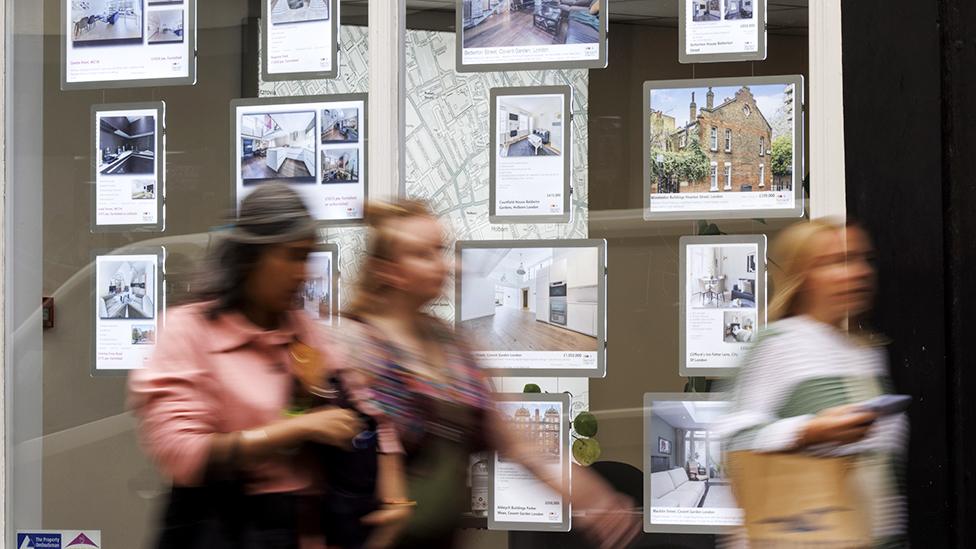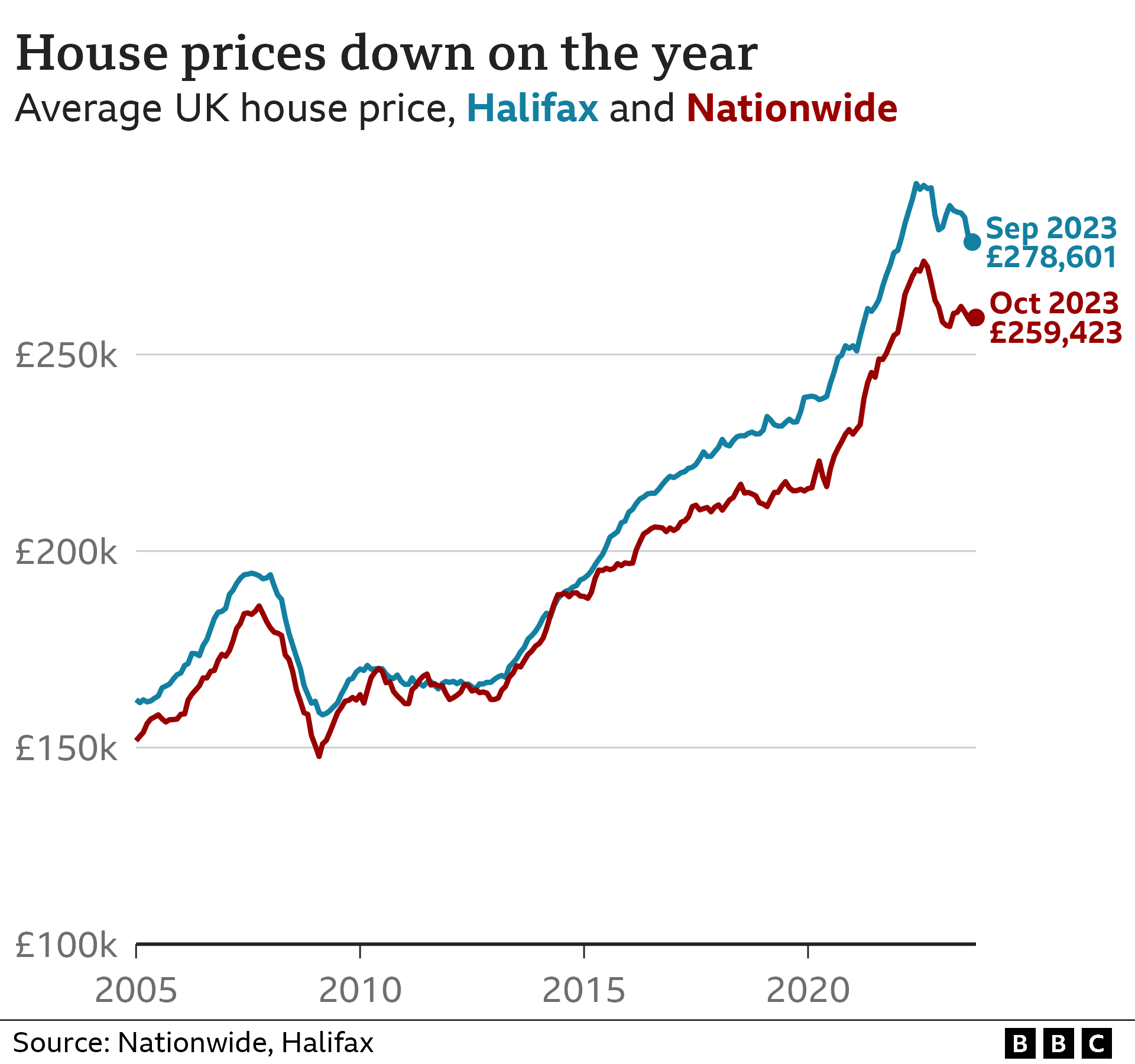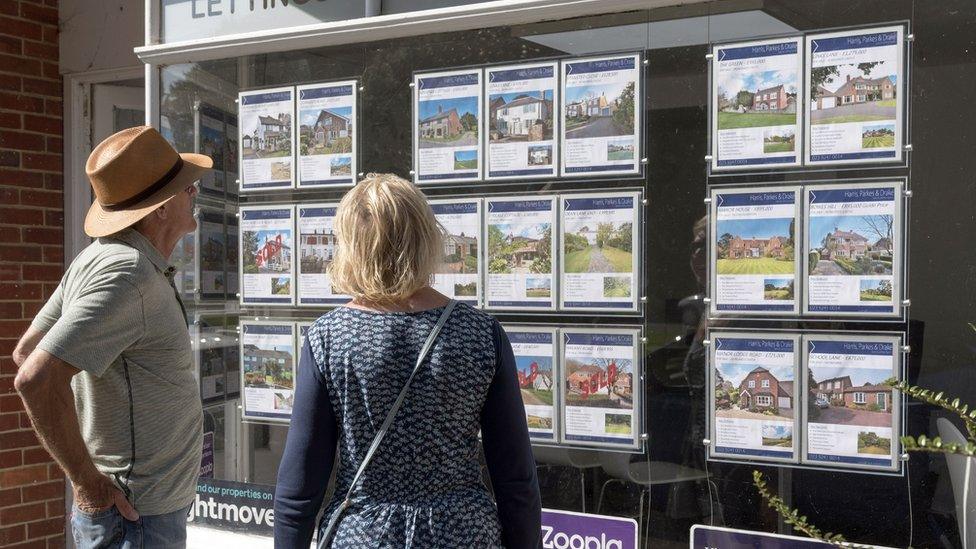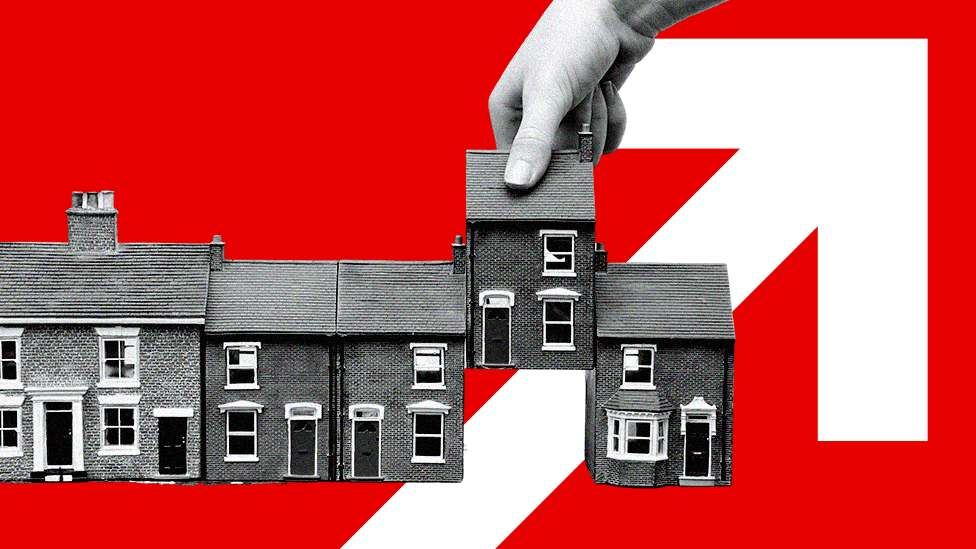House prices see biggest monthly rise for more than a year
- Published
- comments

House prices had the biggest monthly rise in October for more than a year, according to the Nationwide.
However, they were still down sharply on a year ago, the UK's biggest building society said.
The 0.9% monthly rise in prices was most likely due to there not being enough properties to meet demand, it said.
Activity in the housing market is still "extremely weak", it added, as buyers grapple with higher mortgage rates.
"This is not surprising as affordability remains stretched," said Robert Gardner, Nationwide's chief economist.
"Market interest rates, which underpin mortgage pricing, have moderated somewhat but they are still well above the lows prevailing in 2021."

On an annual basis the price of an average home fell by 3.3% in October to £259,423 - down from £268,282 a year earlier.
However, prices are still much higher than before the Covid pandemic, which sparked a mini-housing boom as people sought more space, enjoyed historically low mortgage rates, and benefitted from a stamp duty holiday.
The average cost of a UK home in October 2019 was £215,368, according to Nationwide.
Although it is difficult for many first-time buyers to secure a mortgage at the moment, they will welcome the correction in prices.
"Sky-high borrowing costs and the continued squeeze on household incomes forces some to delay buying plans because they are unable to secure a mortgage," said Alice Haine, an analyst at investment platform Bestinvest.
Mr Gardner said that borrowing costs were likely to remain relatively high compared with the last decade, but affordability would eventually improve.
"It appears likely that a combination of solid income growth, together with modestly lower house prices and mortgage rates, will gradually improve affordability over time, with housing market activity remaining fairly subdued in the interim," he said.
Last week Lloyds Banking Group, which owns the Halifax - the UK's biggest mortgage lender - said UK house prices were likely to drop by 4.7% this year and by a further 2.4% in 2024, before starting to rise again in 2025.
Nationwide bases its survey data on its own mortgage lending, so the survey does not include those who purchase homes with cash or buy-to-let deals.
According to the latest available official data, cash buyers currently account for more than a third of housing sales.
Surging mortgage rates
To tackle soaring inflation, the Bank of England put up interest rates 14 times in a row before holding them steady at 5.25% in September.
The theory is that by raising rates it becomes more expensive to borrow money, people have less to spend, and demand falls - meaning businesses put up their prices less quickly.
But mortgage rates tend to rise in line with official interest rates, so house buyers, people on tracker mortgages and those re-mortgaging have seen their costs surge.
In the UK, the rate on an average five-year fixed residential mortgage was 5.87% as of 31 October, down slightly from levels seen earlier in 2023 but still high compared with a few years ago.
- Published1 September 2023

- Published1 August 2023
